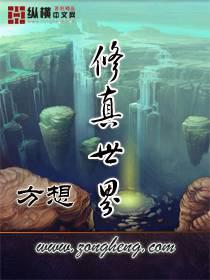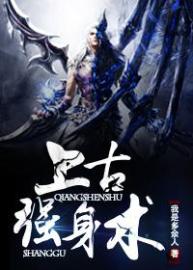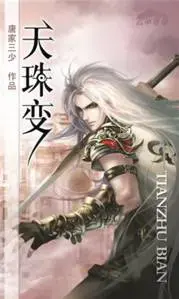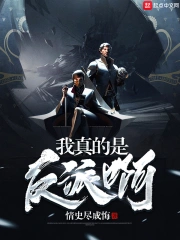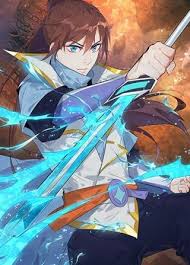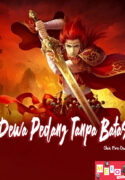The Story in 3 Sentences
A nameless, amnesiac youth with a zombie-like face is picked up by a minor sect, dreaming only of farming spirit plants for profit, his life a quiet struggle at the very bottom of the rigid cultivation hierarchy.
Fate violently intervenes when a hidden power within him is revealed, shattering his simple dreams and thrusting him onto a chaotic, war-torn path where he must master formations, talismans, and command armies just to survive and uncover the truth of his stolen past.
He ascends from a penniless farmer to a legendary, world-shaking figure, his journey defined not by brute force but by cunning, resourcefulness, and an unyielding, pragmatic will, culminating in a final, decisive battle that reshapes the heavens before he seeks a quiet, hard-won peace.
Why It Stands Out
1. The Anti-Hero Farmer Who Accidentally Conquered the Heavens
Forget the destined heroes and righteous avengers; Zuo Mo’s sole ambition is wealth through agriculture. His entire epic saga is a tragicomic derailment of this simple goal, as sects, wars, and cosmic secrets conspire to turn the reluctant, money-grubbing cultivator into an unstoppable force. His power comes from mastering intricate crafts like formations, making his victories feel earned through intellect and grit, not just raw cultivation levels.
2. A Living, Breathing World of Sects and Systems
The novel excels in its granular, almost economic, world-building. It delves into the politics of minor sects, the logistics of running a cultivation army, and the intricate value of resources like “Jingshi.” This focus on the mundane mechanics of the xianxia world, from shopkeeping to troop quartermasters, creates a uniquely grounded and immersive experience that feels far more real than tales of solitary heroes punching mountains.
3. Character Depth in a Sea of Faces
Despite its massive cast, the novel invests in making even minor characters memorable. From the grumpy ancient spirit Pu Yao to the fiercely loyal bandit-leader Xie Shan, each supporting figure has distinct quirks, motivations, and arcs. Their interactions with Zuo Mo are layered, evolving from suspicion to deep loyalty, creating a rich tapestry of relationships that drive the narrative as much as the plot itself.
Characters That Leave a Mark
There’s Pu Yao – the ancient, sarcastic spirit bound to a sword who becomes Zuo Mo’s reluctant mentor and partner in crime, his millennia of wisdom clashing hilariously and profoundly with the protagonist’s pragmatic, profit-driven mindset.
You’ll meet Xie Shan, who starts as a roaming cultivator and bandit leader before becoming one of Zuo Mo’s most trusted and formidable lieutenants, his rough exterior hiding a deep sense of loyalty and tactical brilliance.
And Bao Yi? They’re the one who manages the impossible, serving as the meticulous quartermaster for Zuo Mo’s growing forces, turning chaos into order and ensuring the army’s coffers and supplies are never empty, a vital anchor in the storm of war.
The Flaws Fans Debate
The narrative momentum falters significantly in the latter half, with many readers feeling the author lost control of the sprawling plot and vast cast of characters.
The ending is widely criticized as abrupt and deeply unsatisfying, feeling rushed and failing to deliver a proper emotional or narrative payoff after 900+ chapters of buildup.
Power progression and world rules become increasingly inconsistent in the final arcs, with convenient power-ups and forgotten abilities undermining the carefully established systems of the early story.
Must-Experience Arcs
Ch. 1–100: The Wu Kong Sect Farmer – Zuo Mo’s humble beginnings as a spirit farmer in a tiny sect, where his discovery of hidden talents and the first hints of his mysterious past set the entire saga in motion.
Ch. 300–500: The Vermillion Bird Camp – Zuo Mo builds his own power base from the ground up, recruiting loyal followers like Xie Shan and Bao Yi, mastering large-scale formations, and transitioning from a lone cultivator to a commander embroiled in regional wars.
Ch. 800–915: The Final Confrontation – The long-simmering conflicts and mysteries of Zuo Mo’s identity come to a head in a climactic, world-altering battle against his ultimate rival, Lin Qian, bringing his journey full circle in a fight that decides the fate of the cultivation world.
Killer Quotes
“Money is the root of cultivation. Without money, everything else is useless.”
“Some are born great, some achieve greatness, and some have greatness thrust upon them.”
Cultural Impact
It consistently ranks among the most popular and highly-rated completed xianxia novels on platforms like NovelUpdates, with over 14,000 readers adding it to their reading lists.
It is frequently cited in online forums and recommendation lists as a benchmark for unique world-building and character-driven storytelling within the genre, often mentioned alongside titans like “I Shall Seal the Heavens.”
The character of Zuo Mo, the reluctant, profit-obsessed hero, has become a beloved archetype, inspiring memes and discussions about subverting traditional xianxia tropes.
Final Verdict
Start Here If You Want:
A protagonist whose greatest dream is farming, not fighting gods.
A xianxia world that feels lived-in, with politics, economics, and logistics that matter.
A slow-burn character study where growth is cerebral and relationships are the true power.
Study If You Love:
Narratives that deconstruct genre tropes, turning a farmer into a warlord.
The intricate, almost anthropological, detail of building a fictional society from the ground up.
Stories where the supporting cast is as compelling and well-developed as the main hero.
Avoid If You Prefer:
Fast-paced, action-packed stories from the very first chapter.
A clean, tightly-plotted narrative without sprawling subplots or a massive cast.
Endings that tie every thread into a neat, emotionally resonant bow.
